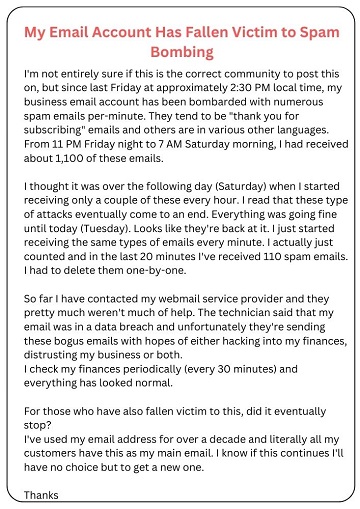Spam Email Scams
Explore our guide on protecting yourself from spam email scams. Learn to recognize and prevent phishing emails, enhance your online security, and stay updated on the latest cyber threats. Discover effective measures for scam prevention and boost your awareness to safeguard against fraudulent email activities.
Professional scammers employ both traditional and innovative methods to deceive innocent individuals and siphon off their hard-earned money. Operating under various aliases and from different countries, these criminals can turn millionaires into paupers in the blink of an eye. Safeguarding money in leading banks has become a challenging task for account holders, as they are uncertain when scammers might exploit vulnerabilities. Banks are continually enhancing their online security measures and keeping account holders informed of developments. The scammers, treating their fraudulent activities like a ritual or religion, invest considerable time in devising new methods to swindle money.
Rise of Spam Email Scams
Scams associated with spam emails are on the rise, and authorities are struggling to halt these fraudulent activities. Operating from the underworld, scammers send emails to hundreds of people, urging them to open attachments. These emails often end up in the recipients' spam folders. When opened, these emails can compromise computer settings and infect the system with a dangerous virus. The impact extends beyond settings, affecting various folders and programs. The definition of spam email scams and their connection to money is a hot topic that warrants discussion. Email users should exercise caution when opening spam folders, as these emails originate from the scamming world. Avoid opening junk emails, and if spam emails are opened, delete them immediately.
Some of the famous and popular scam mails related to scam is as follows:
- Discover Proven Methods to Grow Your Wealth Instantly
- Safeguard Your Computer with this Free Anti-virus Software
- Unlock Exclusive Offers and Discounts by Opening This Folder
- Explore Opportunities in Dating, Gambling, Enhancement Pills, and More
Unlock Exciting Offers and Information - But Beware!
Avoid opening any spam mails or attachments and promptly delete all folders to prevent immediate system infection. Emails in the spam folder may be phishing attempts, so exercise caution. Scammers often masquerade as trusted banking or financial partners, urging recipients to provide sensitive financial and bank details. Disclosing such information can lead to spontaneous money theft. Opening unsolicited mails poses severe risks to the computer. Even if spam mails appear glossy and official, resist the temptation to open them, as they may originate from the scamming world. In case of such scamming activities, escalate the matter to cyber patrol or relevant authorities. Spam mails may also promote weight loss programs and work-from-home concepts; forward such emails to the US government and await their actions.
In the ever-changing landscape of email spam scams, scammers continuously innovate their tactics to deceive unsuspecting individuals. One prevalent strategy involves sending emails that mimic official communications, enticing recipients to open attachments or click on links. These emails often promise quick riches, free software, exclusive offers, or tempting work-from-home opportunities. Cautionary Measures:
- Immediate Deletion: Resist the urge to open suspicious emails or download attachments. Deleting them promptly can prevent potential harm to your system.
- Phishing Awareness: Be cautious about phishing attempts, especially in emails that appear official. Scammers may pose as trusted entities, attempting to trick you into divulging sensitive information.
- Financial Impersonation: Exercise extreme caution if an email claims to be from a trusted financial institution, requesting confidential financial details. Legitimate organizations typically don't request such information through email.
- Government Reporting: If you encounter weight loss programs, work-from-home schemes, or other suspicious emails, consider forwarding them to relevant government authorities for investigation.



